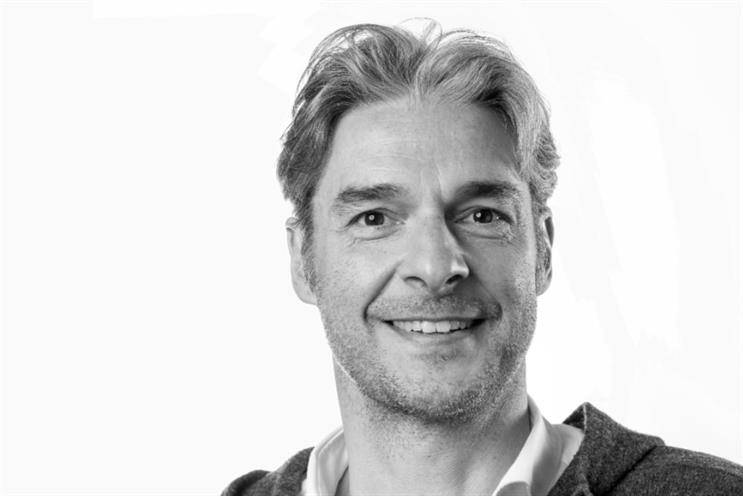Turning the beauty industry on its head again and again
Prior to our "±±¾©Èü³µpk10 for real beauty" launch 17 years ago, beauty was viewed as an “exclusive game”. The way women were portrayed was taking its toll, with only 2% seeing themselves as beautiful. It was a wake-up call.
Prevalent narrow beauty standards were affecting women’s and girls’ self-esteem, limiting their full potential. "±±¾©Èü³µpk10 for real beauty" turned the industry on its head. And Dove took it on as a rallying cry to do more.
We wanted to make beauty a positive experience, universally accessible to every woman. It meant driving representation in advertising and investing in education through the creation, at the same time, of the Dove Self-Esteem Project. This provides body confidence and self-esteem education to young people and is now part of several countries’ curriculums, reaching more than 69 million.
But it’s not enough to focus on individual interventions – we need to influence the entire social ecosystem to foster change. We want to change beauty by disarming the threats it presents to girls’ self-esteem, breaking down toxic beauty practices and stereotypes through education.
Actions speak louder than words
Brands and companies should have a purpose, because all businesses should be built responsibly. But Gen Zers expect more, voting with their wallets and urging brands to do the same. A purposeful ad must be backed up with action. That’s why it was critical to invest in self-esteem education and not just talk about real beauty.
Brands need to be accountable, transparent and authentic. One in three people has already renounced a brand they felt responded inappropriately during the Covid-19 pandemic. Brands with purpose need to stay tuned to events, and act and respond to the imminent issues society is facing.
During Covid-19, we donated personal care products to charities and hospitals. That’s what we thought our immediate role was. But after seeing images of frontline healthcare workers with their protective gear and fatigue etched on faces, that, for us, represented real beauty. Our “Courage is beautiful” campaign raised awareness of frontline healthcare workers’ bravery around the world.
In support of Black Lives Matter, we wanted to make the beauty industry more equitable. As a founding member of The Crown Coalition, and supporter of the US CROWN (Create a Respectful and Open World for Natural Hair) Act, we have been advocating since 2019 to make race-based hair discrimination illegal in the US (discrimination against people of colour for natural hair styles and textures in the workplace and in schools).
Picture perfect? Tackling digital image manipulation
In 2021, we have re-ignited the real beauty conversation under our “Let’s change beauty” communications platform. It’s an “actionist” movement – every commitment matched with an action driving change.
It started with a conversation around self-digital distortion. The inexorable rise of social media has led to digital distortion on a huge scale. Retouching tools used by professionals are now widely accessible to younger people, without regulation. By the age of 13, 80% of girls have applied a filter or an app to change their look in photos, while 77% change or hide at least one body feature before posting on social media.
We see so much creativity and expression of self-identity using filters and editing apps, but when filters are used to digitally distort images to conform to narrow beauty standards, it can become damaging to the self-esteem of young people. Girls particularly begin to feel the pressure to edit and distort themselves to create something “perfect”, which cannot be achieved in real life. We want to highlight that issue and help provide tools to parents and carers to help young people navigate social media in a positive way through the new Selfie Talk tool.
From ‘activist’ to ‘actionist’
Brand activism will become increasingly important. For Dove, it’s about following an actionist strategy for systemic change. Using the term “actionist” instead of “activist” reminds us that as a big brand with spending power, we need to provide solutions rather than just protest.
The CROWN Act initiative and a “Help us end hair discrimination in the workplace and schools” petition are examples of actionist campaigns we will spearhead over the next year.
What we learnt is that activism means collective action. We cannot drive that change alone. We need to partner like-minded companies, NGOs, individuals and even competitors to make a difference. Driving collective action means delivering long-standing impact. With our partners we are committed to a more caring and compassionate world, where beauty is a source of happiness, not anxiety and where everybody can define themselves as beautiful.
Putting women and girls centre stage
We have worked in partnership for many years with great talent and agencies such as Ogilvy and Edelman, which are committed to Dove’s mission, from creative inception through to buying media.
We are receptive to ideas from everywhere because we can’t stay still and hesitate when change is happening. We attract people with passion not only for their creativity, but also because they want to make a difference – “the creative actionists”.
Women and girls are at the centre of everything we do, Dove amplifies their voices. We learn from their experiences every day so we can do a better job to make the beauty industry a better place.
Alessandro Manfredi is executive vice-president, Dove at Unilever


